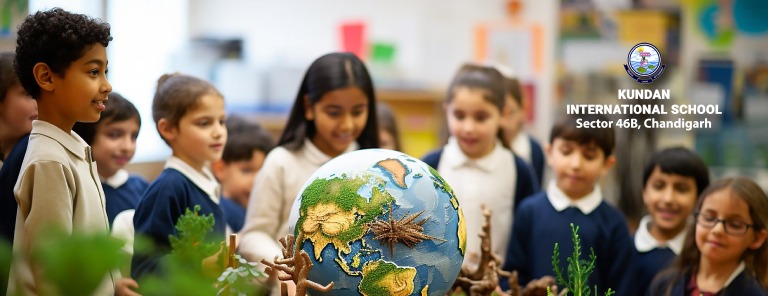In today’s rapidly changing world, environmental sustainability has emerged as a critical issue that demands urgent attention and action. As we grapple with the challenges posed by climate change, pollution, and resource depletion, the role of educators in promoting environmental stewardship within schools has never been more important. As educators, our role in promoting environmental sustainability within schools is paramount. By integrating environmental concepts across the curriculum, organizing experiential learning opportunities such as outdoor education and field trips, and modelling sustainable practices within the school environment, we can instil in students a deep appreciation for the natural world and a sense of responsibility for its protection. Engaging students in community-based projects and initiatives fosters a sense of civic responsibility and empowers them to make a positive impact on their surroundings. Continued professional development in environmental education equips us with the knowledge and skills to effectively integrate sustainability principles into our teaching practice, ensuring that we prepare students to navigate the complex environmental challenges of the 21st century and become stewards of our planet.
In this blog post, we’ll explore the vital role that educators play in fostering environmental awareness, understanding, and action among students, as well as the strategies they can employ to integrate environmental sustainability into the school curriculum and culture.
- Integrating Environmental Concepts Across the Curriculum: Teachers have the unique opportunity to weave environmental sustainability themes and concepts into various subject areas, enriching students’ learning experiences and fostering interdisciplinary connections. Whether it’s exploring the science of climate change, examining the social and economic impacts of environmental degradation, or analyzing the ecological principles underlying biodiversity, teachers can engage students in meaningful discussions and activities that deepen their understanding of environmental issues.
- Experiential Learning and Outdoor Education: One of the most effective ways to cultivate environmental consciousness in students is through hands-on, experiential learning opportunities. Teachers can organize outdoor field trips, nature walks, and environmental expeditions that allow students to explore and connect with the natural world firsthand. These immersive experiences not only enhance students’ appreciation for the environment but also instill a sense of responsibility and stewardship for the planet.
- Promoting Sustainable Practices: Teachers serve as role models for sustainable living within the school environment, demonstrating eco-friendly practices such as recycling, composting, energy conservation, and water conservation. By incorporating these sustainable habits into daily routines and classroom activities, teachers can empower students to adopt environmentally responsible behaviors both at school and in their personal lives.
- Community Engagement and Action: Collaborating with local environmental organizations, community groups, and stakeholders provides teachers with opportunities to extend environmental learning beyond the classroom and engage students in meaningful community-based projects and initiatives. Whether it’s organizing tree planting campaigns, participating in environmental cleanup efforts, or advocating for policy changes, students can make a tangible impact on their community while learning valuable lessons about environmental advocacy and civic engagement.
- Professional Development and Lifelong Learning: Continued professional development in the field of environmental education enables teachers to stay abreast of current trends, research, and best practices in sustainability education. By participating in workshops, conferences, and online courses, teachers can enhance their knowledge, skills, and instructional strategies for effectively integrating environmental concepts into their teaching practice.
In conclusion, teachers play a pivotal role in shaping the environmental attitudes, values, and behaviors of future generations. By embracing their role as environmental educators and incorporating principles of sustainability into their teaching practices, teachers can empower students to become environmentally conscious citizens who are equipped to address the complex environmental challenges of the 21st century. Together, we can cultivate a generation of environmental stewards who are committed to protecting and preserving our planet for future generations.
Etee Malik
PGT Physics
Kundan International School
